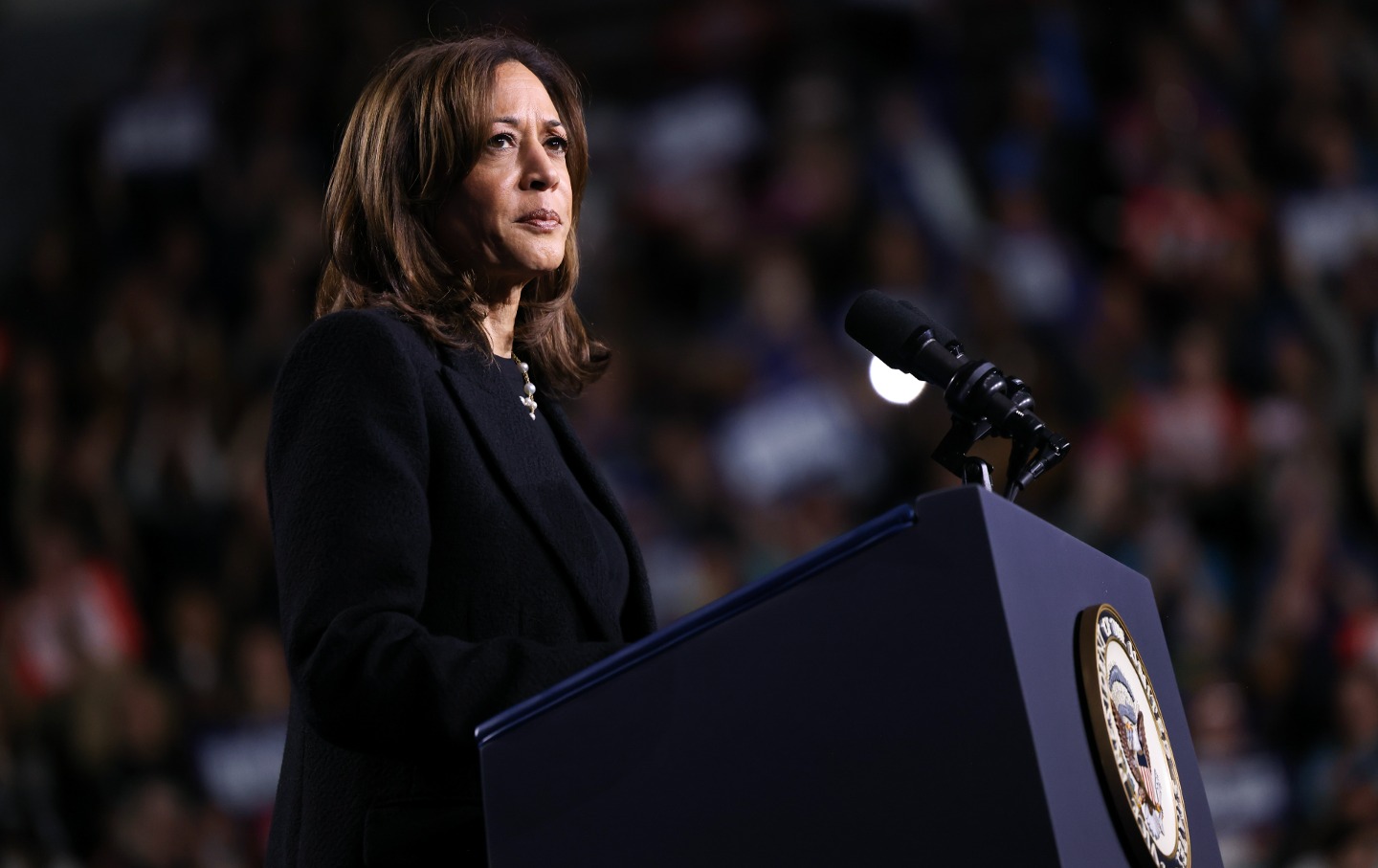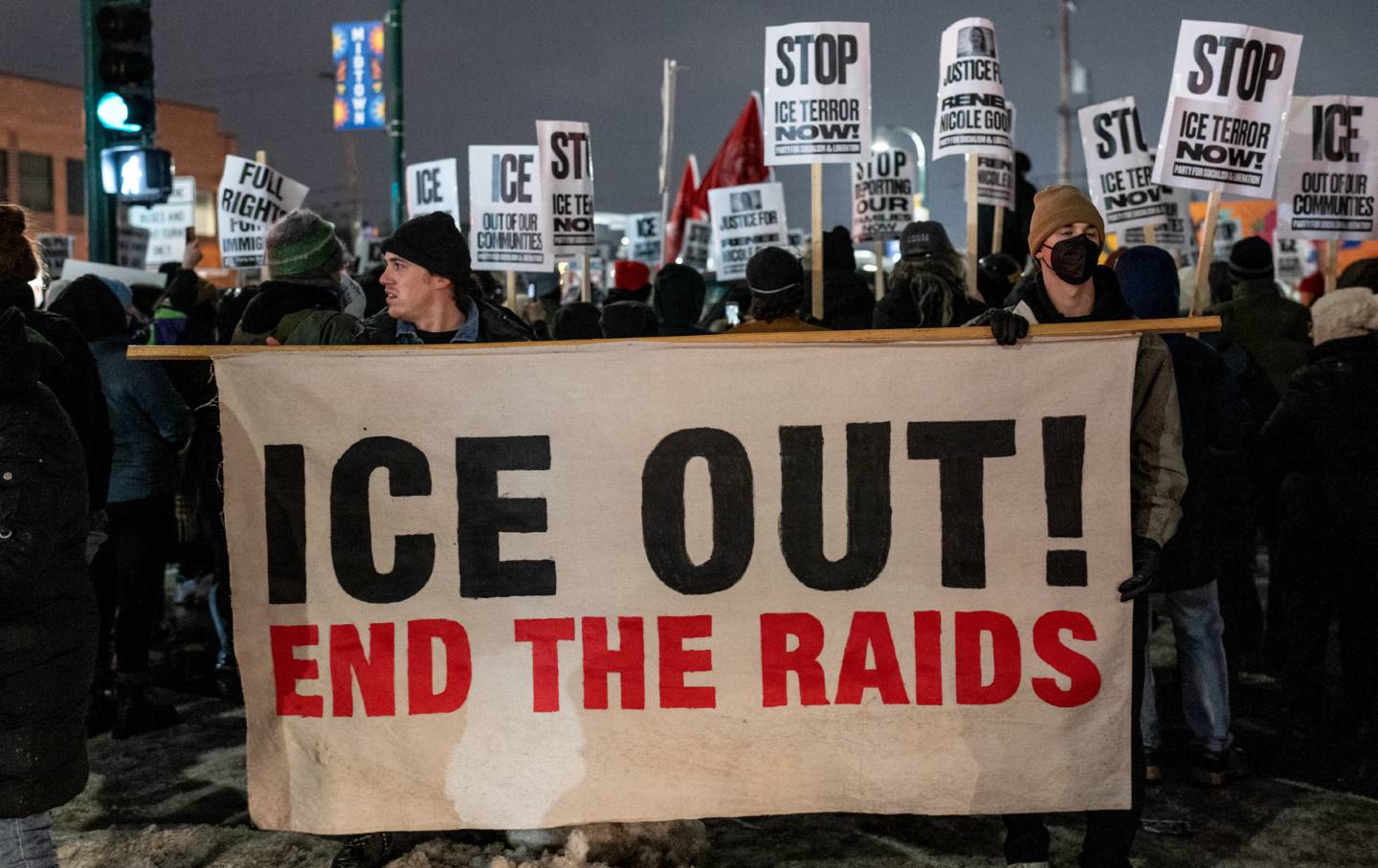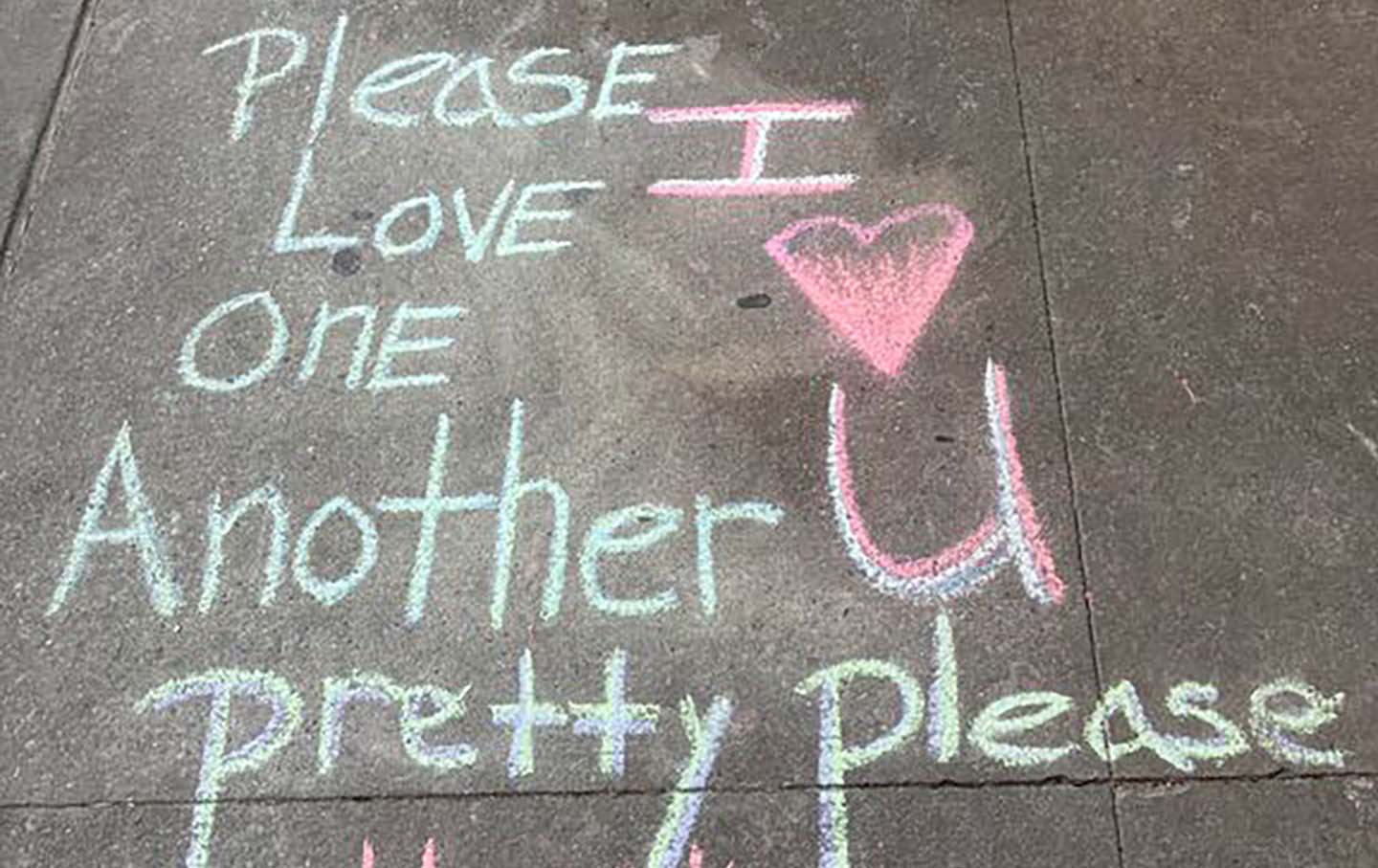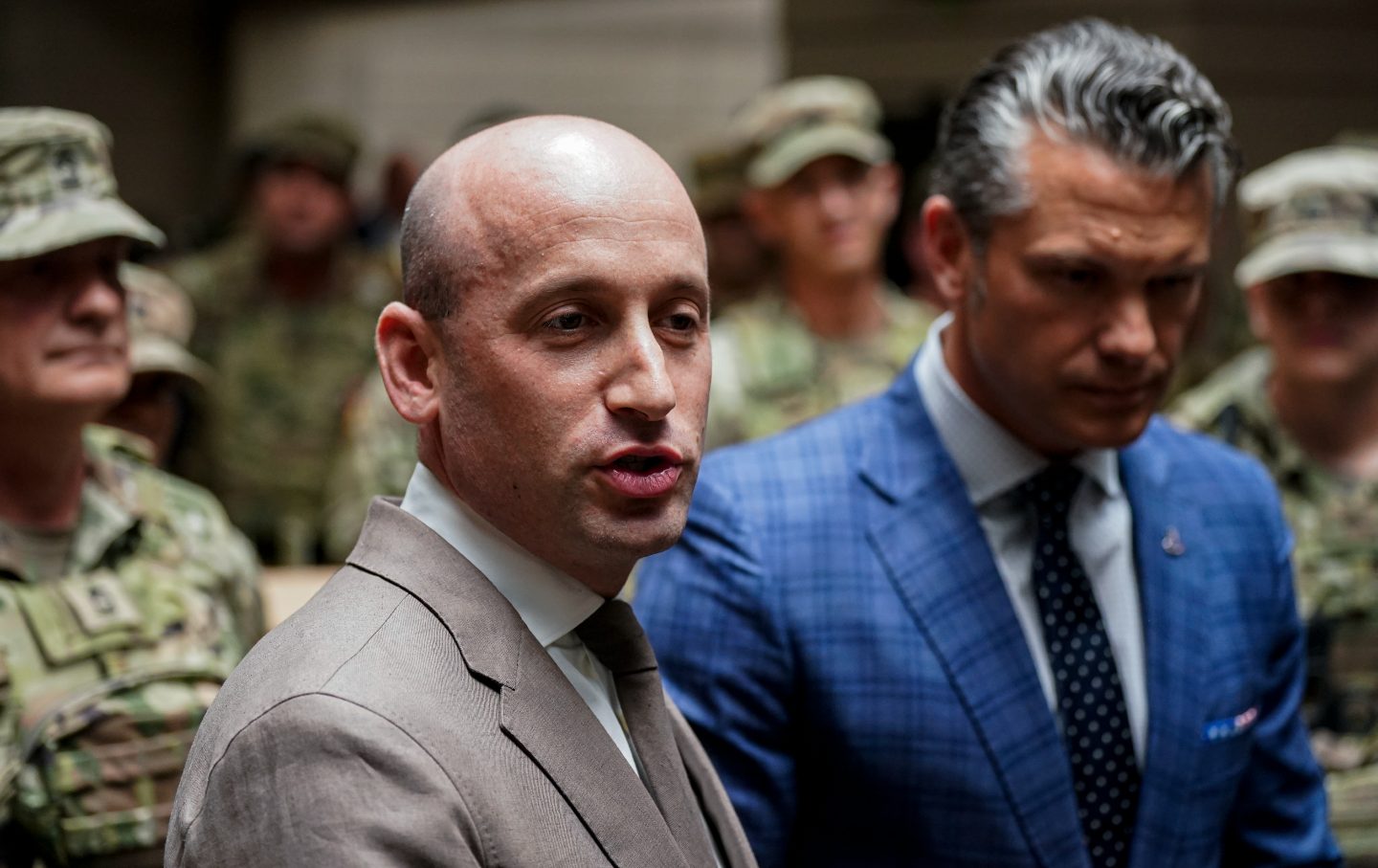No, Trump Did Not Win in a Landslide—nor Did He Secure a Mandate
The election math isn’t as bad as we thought. But the coming Trump administration is shaping up to be worse.

Vice President Kamala Harris at a campaign rally in Allentown, Penn.
(Michael M. Santiago / Getty Images)
As blue Western states and cities finish counting votes, it looks like the popular vote “landslide” projected for Donald Trump last week turned out to be a trickle. When all the votes are counted, he will end up with a margin of roughly two points over Vice President Kamala Harris. Presidents Lyndon Johnson in 1964 and Richard Nixon in 1972 won more than 60 percent of the popular vote; Ronald Reagan in 1984 won 58 percent. Those were landslides.
Don’t get me wrong: It was a bad outcome for Democrats. Trump won all seven swing states, netting himself 312 Electoral College votes (to Biden’s 306 in 2020). Democrats lost control of the Senate; the GOP now has 52 seats, and will likely wind up with 53 when the race between incumbent Pennsylvania Democrat Bob Casey and Connecticut corporate titan David McCormick is finally called (provisional ballots are still being counted). It will probably hold the House, by a slim margin.
So yes, none of this is good news. But it’s not the top-to-bottom repudiation of Democrats as it first looked like, and the way to respond is not to launch a civil war within the Democratic Party. Unfortunately, that has already begun. Centrists blame the doctrine of “woke,” with particular ire for trans Americans (we see you, New York Representative Tom Suozzi); leftists say Democrats abandoned the working class (we hear you, once again, Senator Bernie Sanders). Both positions are wrong. Others point fingers at the Harris campaign. Meanwhile, much of the media hypes Trump’s win as a landslide, which would seem to validate his racist, anti-worker agenda.
Related Articles
I’d argue that the single biggest problem with the Harris campaign was that it inherited a dysfunctional Biden campaign, with only 107 days to go. And even given that, there was much her campaign did right: Her ground game actually made a difference; Trump won by an average of three points in the seven battlegrounds, and seven points in states where there really was no active campaign. The same dynamic led to his narrowing Harris’s margins in Democratic strongholds. (Good job, Democratic parties of New York, California, and New Jersey.) It wasn’t enough of a difference, but it was a difference. I don’t know why she apparently underperformed Biden in Detroit and Philadelphia, but it wasn’t for lack of effort: She visited both cities many times, spending the Sunday before the election in a Black Philadelphia church, a Black barbershop, and a Puerto Rican restaurant. Unlike Hillary Clinton, she did not ignore Wisconsin; she and Walz campaigned there regularly, which might be why she came closest to winning Wisconsin than any of the other swing states.
Harris also turned out to be a strong campaigner, unlike in her unsuccessful 2020 presidential run. And the excitement generated by the switch from Biden to his vice-president was real. But Biden’s creaky Wilmington-based campaign couldn’t channel it—and, for reasons good and bad, Harris was reluctant to shake it up. Although the big media has thoroughly examined the internal campaign trouble, I thought this piece by Jasmine Wright of NOTUS was most revealing. The campaign she inherited wasn’t equipped to make use of either the volunteers or the money Harris-Walz brought in at the start of their campaign.
Of course, Harris made her own mistakes: She brought in former Barack Obama staffers and layered them into the existing dysfunctional leadership structure. Some of her own vice-presidential staff got sidelined, as Wright reports. Perhaps relatedly, she eased up on some of her populist rhetoric, relying on brother-in-law Tony West of Uber to vet policy, and billionaire businessman Mark Cuban as a major surrogate. She didn’t promise to keep antitrust crusader Federal Trade Commission chair Lina Khan in place, and we all know that Cuban and other corporate supporters were gunning for her. She made headlines when she said she would reduce Biden’s promised capital gains tax hike from 35 percent to 28 percent. But how many “working-class” people even noticed those moves?
Also, Sanders’s insistence that Harris’s campaign was “disastrous” and that “a Democratic Party which has abandoned working class people would find that the working class has abandoned them” ignores how much she centered workers in her campaign (let alone how much Biden did for them during his administration!). She regularly campaigned at union halls and alongside union leaders, and there’s no denying the difference her proposed $6,000 infant tax credit, her $25,000 for first-time homebuyers, and her plan to extend Medicare to cover in-home care would have made for working people. But do I know about those proposals only because I covered her campaign? Maybe. Maybe her campaign didn’t lean into that messaging enough. Maybe instead of making a closing argument at the Ellipse, focused on January 6 and Trump’s existential threat to democracy, she should have packed an SEIU union hall and hammered home her opportunity agenda.
Still, I can’t help feeling like some of the complaints about Harris “abandoning” the working class, as ever, focus on the concerns and votes of white male working class (while exit polls are not to be entirely relied upon, the finding that in the 10 states NBC polled this year, Trump won Latino men 55–43 must be noted). Advocates for the female working class, especially women of color, saw what President Harris would do for those workers.
As domestic workers advocate Ai-jen Poo, a strong Harris surrogate, wrote in Time magazine the week before the election: “The Harris agenda invests in caregivers, unpaid and paid, by aiming to cap the cost of child care at 7 percent of income, establish paid family and medical leave, expand access to care at home, and raise wages for care workers. These are the kinds of investments that would help families participate and stay in the workforce and realize the promise of opportunity in America.”
Finally, that class critique ignores Harris’s promising to carry on Biden’s pro-labor policies—many of which were influenced by, or borrowed from, from Sanders himself. As writer Michael Cohen notes, under the Biden-Harris administration, “the working class saw a higher increase in their pay than any other group of Americans, so much so that it undid one-third of the growth in wage inequality since 1980.” Why didn’t working-class voters respond to this? That’s the deeper issue we have to resolve.
Anyway, it’s time to stop the finger-pointing, me included. Let’s wait for more data before trying to understand the demographic shifts; even the best exit polls are notoriously wrong. Stop capitulating to a media narrative that Trump won a landslide (he didn’t) which translates into his having a “mandate” for his policies—he doesn’t. Start strategizing over ways to block his agenda, particularly his promise of mass deportations. With his rapid-fire selection of the creepy Tom Homan, architect of family separation in Trump’s first term, as “border czar,” white nationalist Stephen Miller as deputy chief of staff for policy, and incompetent, dog-murdering Kristi Noem as Homeland Security director, Trump’s earliest personnel moves indicate that wasn’t just rhetoric. The blame game doesn’t protect the vulnerable. Let’s move on to what will.








